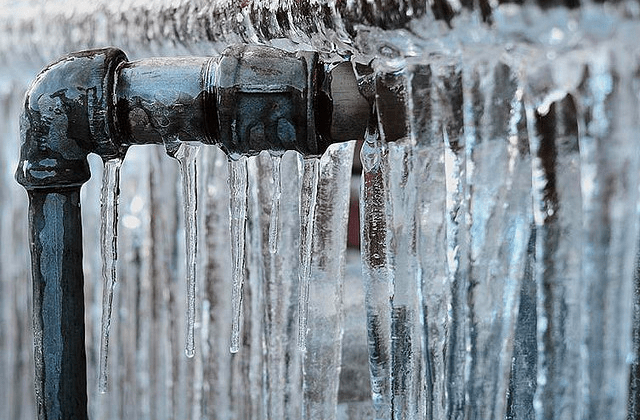Advice for Preventing Frozen Pipes in Winter: Specialist Insights
Advice for Preventing Frozen Pipes in Winter: Specialist Insights
Blog Article
Just how do you actually feel when it comes to How to Prevent Your Pipes From Freezing?
:strip_icc()/snow-outdoor-faucet-pipes-4af65d1e5e904fb1aa7bf74071fe5d89.jpg)
Cold weather can damage your plumbing, especially by freezing pipes. Right here's just how to prevent it from occurring and what to do if it does.
Intro
As temperatures drop, the danger of icy pipes increases, possibly leading to pricey repairs and water damages. Recognizing exactly how to prevent icy pipes is critical for property owners in chilly climates.
Avoidance Tips
Shielding prone pipes
Cover pipes in insulation sleeves or use warmth tape to secure them from freezing temperatures. Concentrate on pipelines in unheated or outside locations of the home.
Heating strategies
Maintain indoor rooms appropriately heated, especially locations with plumbing. Open up cabinet doors to enable warm air to flow around pipes under sinks.
Exactly how to identify icy pipes
Look for reduced water circulation from faucets, uncommon smells or noises from pipelines, and visible frost on subjected pipelines.
Long-Term Solutions
Architectural modifications
Think about rerouting pipes far from exterior walls or unheated areas. Include added insulation to attics, cellars, and crawl spaces.
Upgrading insulation
Invest in top notch insulation for pipes, attic rooms, and walls. Correct insulation assists maintain regular temperature levels and decreases the danger of icy pipelines.
Securing Outdoor Plumbing
Garden hoses and outdoor taps
Separate and drain pipes garden hose pipes prior to winter season. Install frost-proof faucets or cover outside taps with protected caps.
Recognizing Icy Pipes
What causes pipes to ice up?
Pipes ice up when subjected to temperature levels below 32 ° F (0 ° C) for expanded periods. As water inside the pipes ices up, it increases, putting pressure on the pipeline walls and possibly creating them to rupture.
Dangers and problems
Frozen pipes can bring about water system disruptions, home damage, and pricey repair work. Burst pipelines can flooding homes and trigger substantial architectural damages.
Signs of Frozen Water Lines
Determining icy pipelines early can prevent them from breaking.
What to Do If Your Pipes Freeze
Immediate activities to take
If you presume icy pipes, maintain taps available to ease pressure as the ice melts. Use a hairdryer or towels soaked in hot water to thaw pipes slowly.
Final thought
Avoiding frozen pipes requires aggressive measures and quick reactions. By comprehending the reasons, indicators, and preventive measures, home owners can protect their plumbing throughout cold weather.
5 Ways to Prevent Frozen Pipes
Drain Outdoor Faucets and Disconnect Hoses
First, close the shut-off valve that controls the flow of water in the pipe to your outdoor faucet. Then, head outside to disconnect and drain your hose and open the outdoor faucet to allow the water to completely drain out of the line. Turn off the faucet when done. Finally, head back to the shut-off valve and drain the remaining water inside the pipe into a bucket or container. Additionally, if you have a home irrigation system, you should consider hiring an expert to clear the system of water each year.
Insulate Pipes
One of the best and most cost-effective methods for preventing frozen water pipes is to wrap your pipes with insulation. This is especially important for areas in your home that aren’t exposed to heat, such as an attic. We suggest using foam sleeves, which can typically be found at your local hardware store.
Keep Heat Running at 65
Your pipes are located inside your walls, and the temperature there is much colder than the rest of the house. To prevent your pipes from freezing, The Insurance Information Institute suggests that you keep your home heated to at least 65 degrees, even when traveling. You may want to invest in smart devices that can keep an eye on the temperature in your home while you’re away.
Leave Water Dripping
Moving water — even a small trickle — can prevent ice from forming inside your pipes. When freezing temps are imminent, start a drip of water from all faucets that serve exposed pipes. Leaving a few faucets running will also help relieve pressure inside the pipes and help prevent a rupture if the water inside freezes.
Open Cupboard Doors
Warm your kitchen and bathroom pipes by opening cupboards and vanities. You should also leave your interior doors ajar to help warm air circulate evenly throughout your home.

As an avid person who reads about How to Prevent Your Pipes From Freezing, I thought sharing that piece of content was really helpful. If you please pause to promote this write-up if you enjoyed it. I truly appreciate your readership.
Call Today Report this page